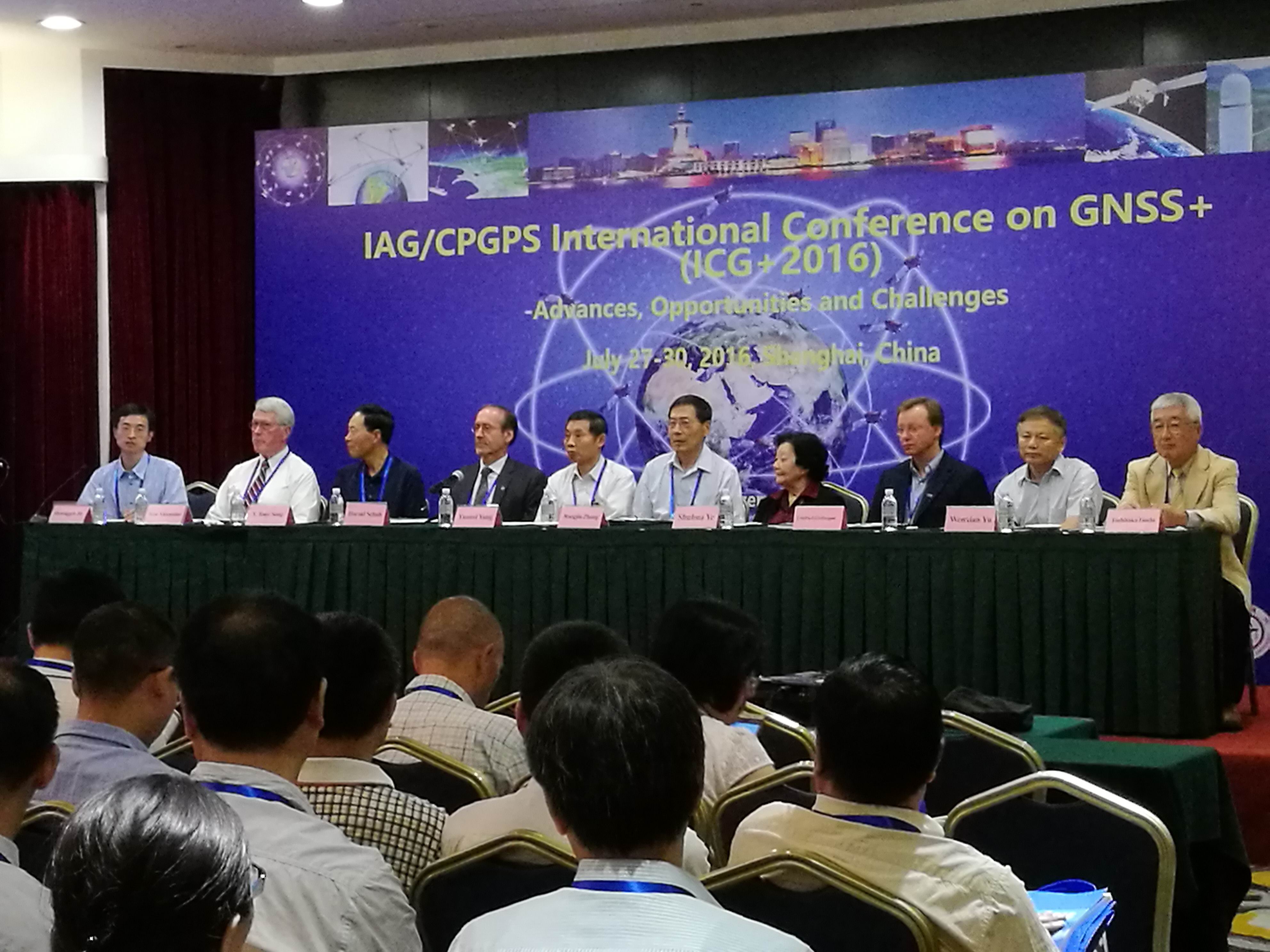Nowadays, multi-Global Navigation Satellite Systems (GNSS) have been developed and widely used, including US's GPS, Russia's GLONASS, China's BeiDou and EU's Galileo as well as regional systems, such as Japan's QZSS and India's IRNSS. The IAG/CPGPS International Conference on GNSS+ (ICG+2016) was held at the Shanghai Astronomical Observatory, CAS, July 27-30, 2016, Shanghai, China. The recent advances, opportunities and challenges on GNSS were presented and discussed, including GNSS constellations, signals, orbit, receiver, positioning/navigation/timing theory, algorithms, models and applications in engineering and Earth science as well as using combined multi-sensors.
The ICG+2016 was jointly sponsored by the International Association of Geodesy (IAG) and International Association of Chinese Professionals in Global Positioning Systems (CPGPS), which provided a platform for GNSS scientists and engineers to communicate and exchange in theory, methods, technologies, applications and future challenges. About 260 participants from over 20 countries/regions attended the ICG+2016 with about 100 oral talks and 100 posters. More information can be found at http://202.127.29.4/meetings/icg2016.
